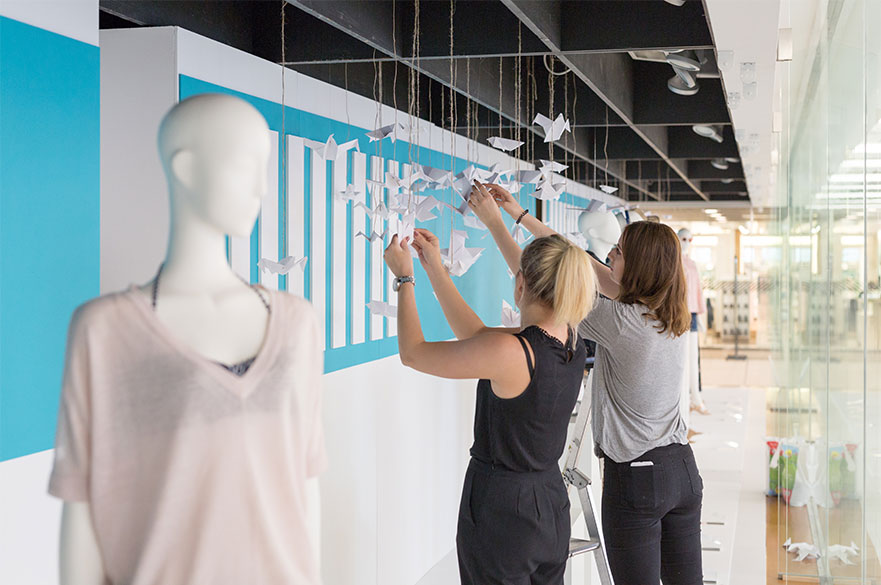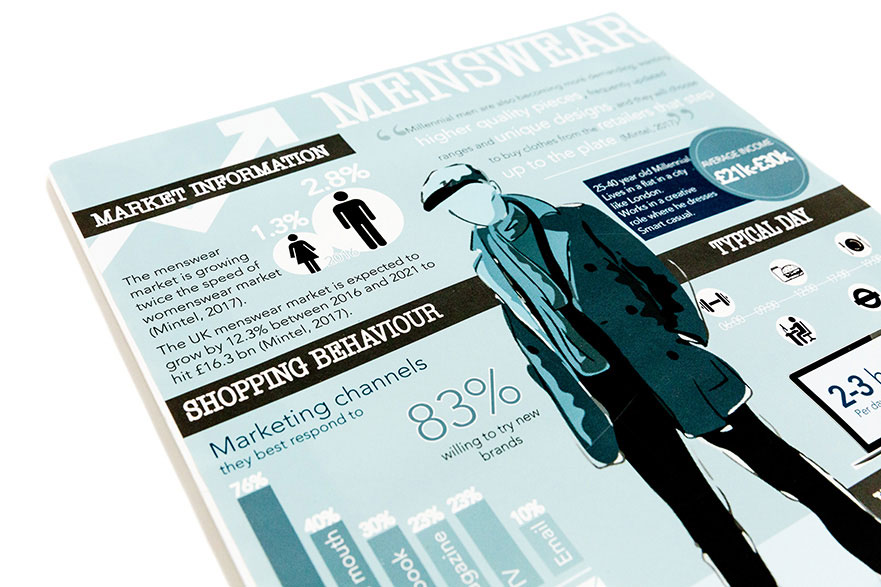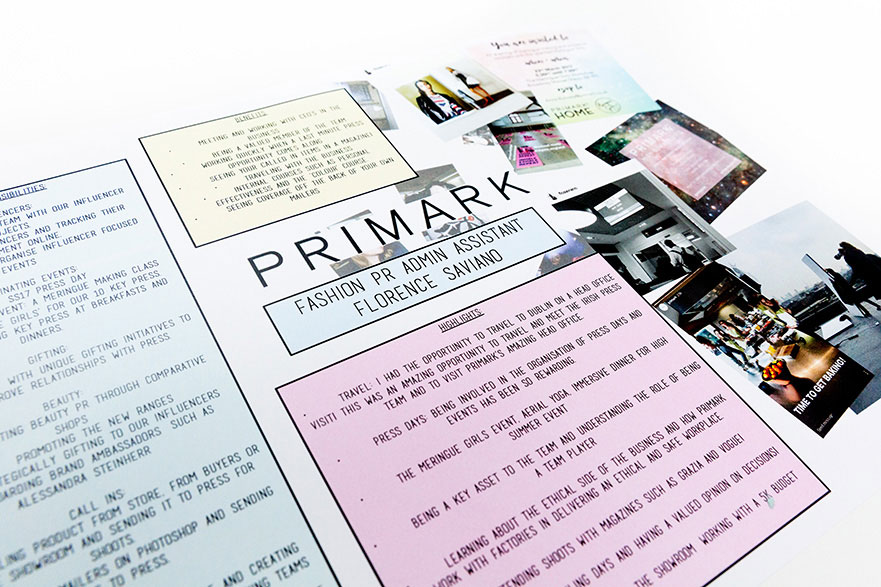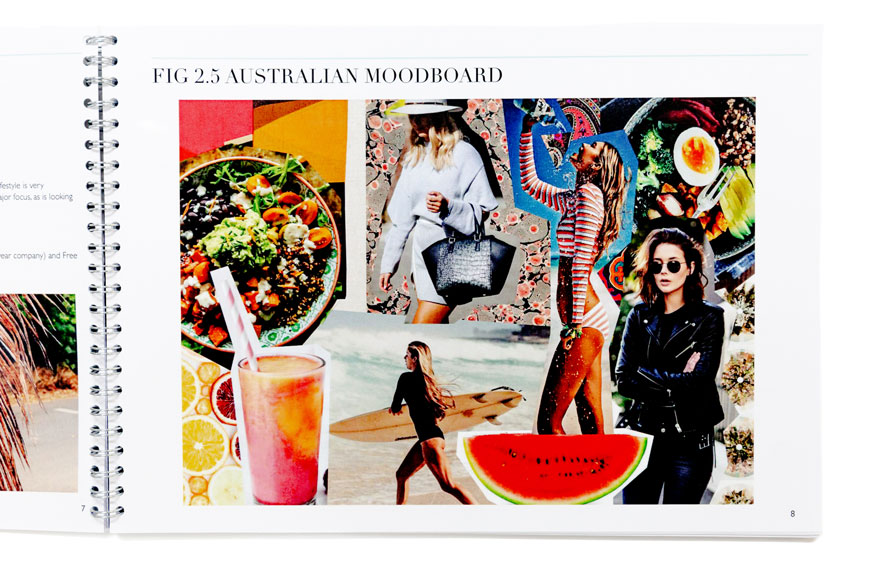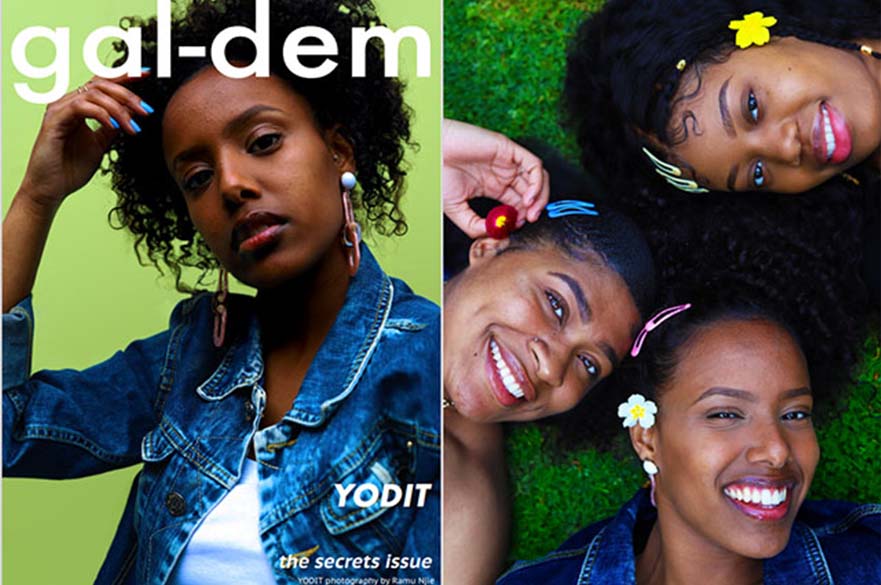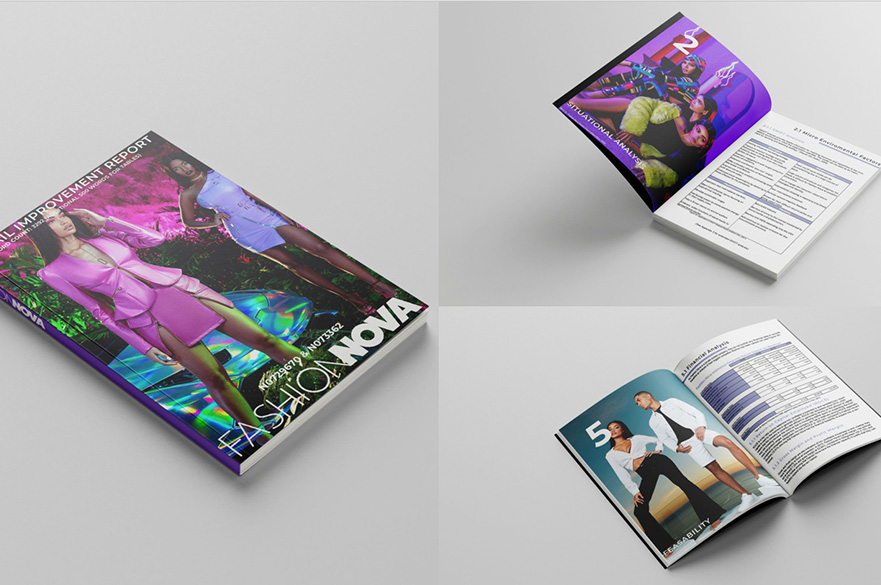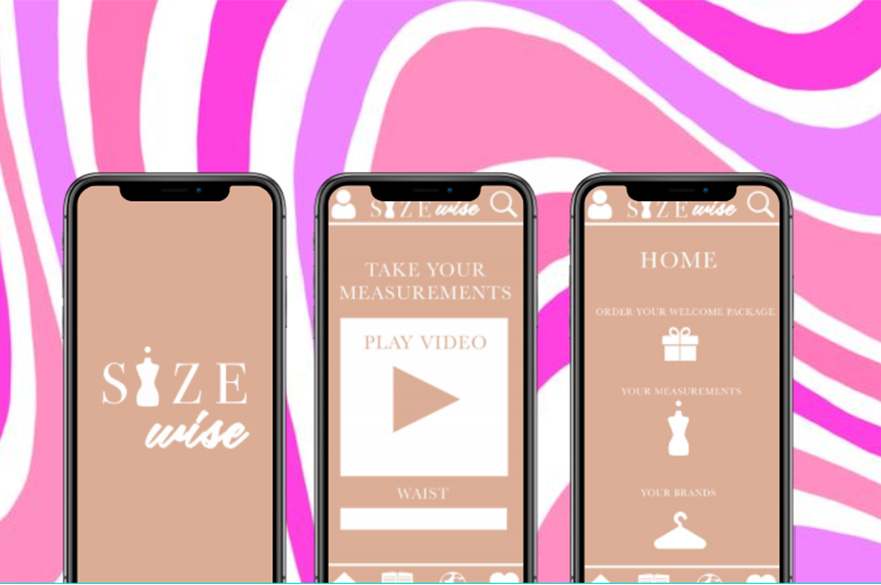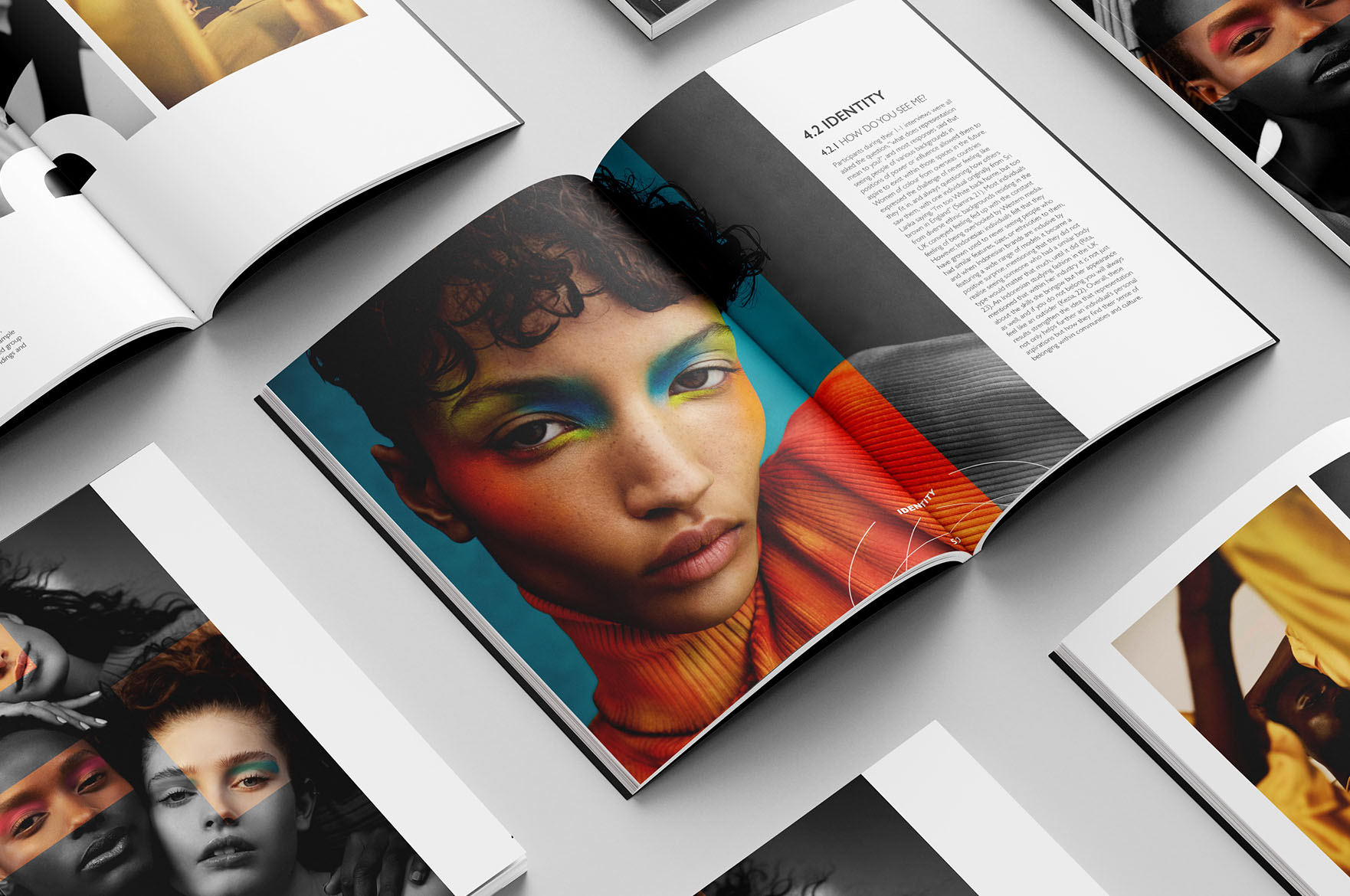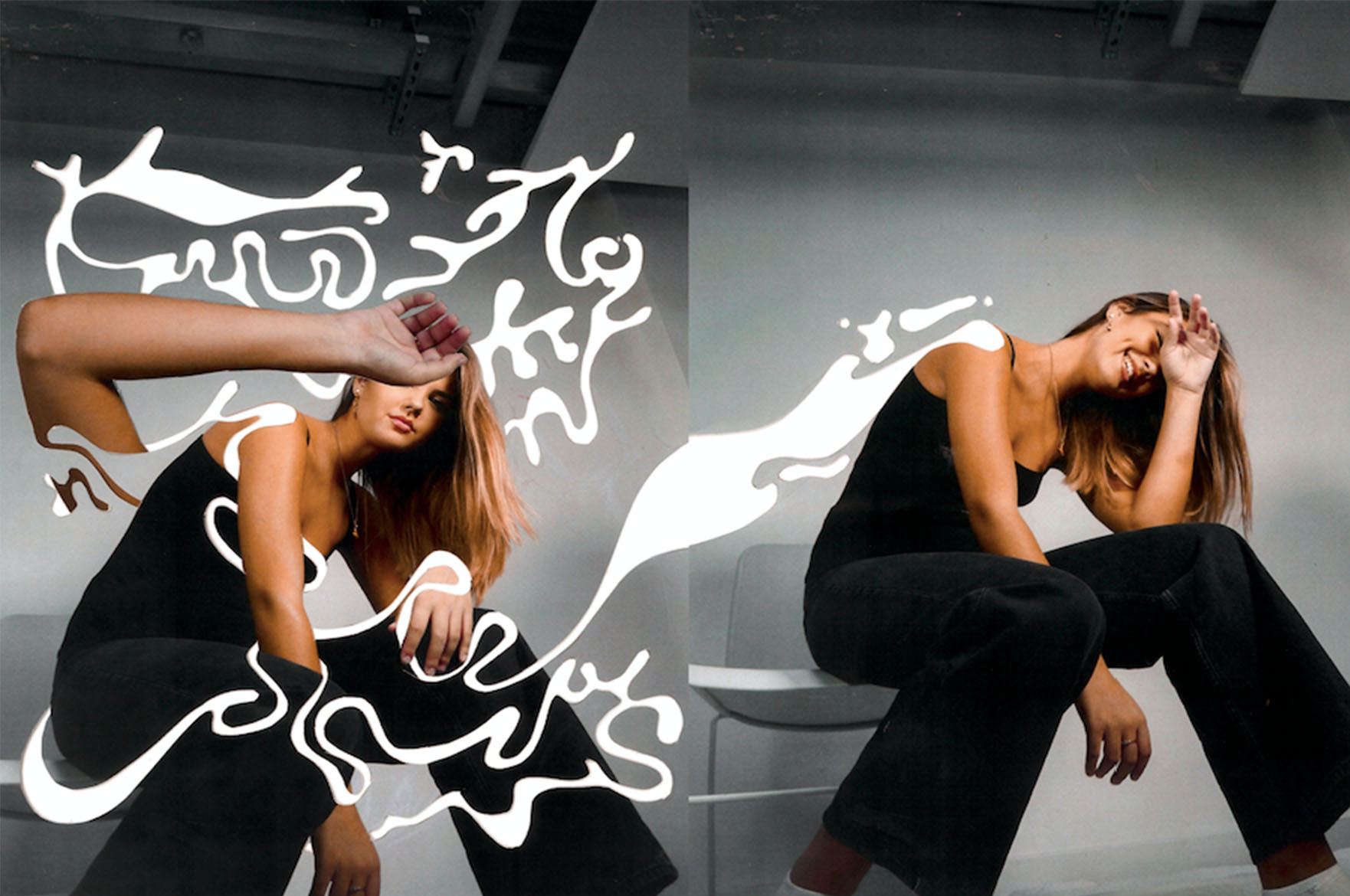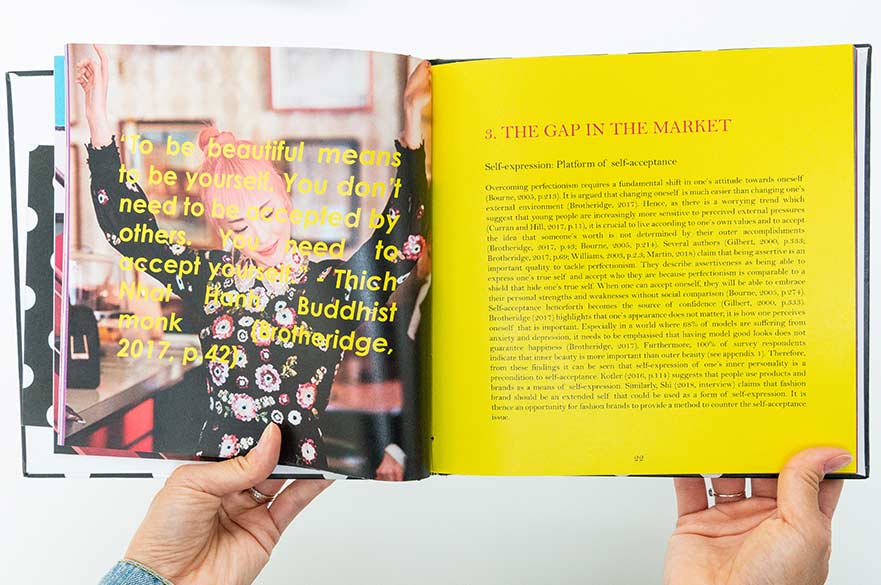Beat the Clearing queue
About this course
How do fashion products grow from design concepts to must-have purchases? From factory floors to shop shelves, what does their journey to market look like? How do we ensure that fibres and fabrics are ethically sourced, and that manufacturing and packaging are sustainable? And where does profitability fit in?
If you dream of becoming a fashion buyer or merchandiser, or you’re fascinated by retail, you’ve found your perfect course. From boutique to big business, explore a fast-paced global industry from every angle — supply and demand cycles, production costs and lead times, where things are best manufactured (and why), how to market products in an enticing, innovative way, and more. Working with experts, you’ll be partnering real businesses to tackle real challenges around real products.
Maybe you’re interested in fabrics and the latest manufacturing technology; maybe you’re a born number-cruncher and trend-spotter; maybe you want to manage your own label, and push back against fast fashion. Step into the world of all things fashion business, choose your own pathways and specialisms, and we’ll help you to make your mark in this dynamic industry.
-
Get professionally connected with a nine-week work experience placement, and / or a full year in industry.
-
Work with major brands like Next, Gymshark, Oh Polly and Ralph Lauren on challenging real-world projects.
-
Study abroad with one of our international partners, such as the Fashion Institute of Technology in New York.
-
Visit the UK’s fashion hubs, and enjoy an optional study trip to one of Europe’s top style capitals.
15
What you’ll study
Develop the business and creative skills that power the global fashion industry. From the catwalk to the high street, you’ll get hands on with brands, consumers and products and shape your own future by personalising your learning experience.
This isn’t a design-orientated course, but you’ll still be focused on ‘product’ — from the first feel of fabric in your hands, to how those products are manufactured, packaged and shipped, to the planning and development of how they’re merchandised. It’s about finding practical solutions to real-world industry questions. How can the fashion trade reduce its environmental impact and embrace sustainability, while still meeting the needs of the consumer and turning a profit? What do technological advancements in fields like AI and data mean for fashion business? How do global trends and developments impact the supply chain?
On this Fashion Management course, you’ll find the answers to these questions and more. You’ll also:
- explore production from the ground up, at the first stages of a product’s life
- analyse the psychology of merchandising to understand its impact on supply and demand
- use your interpretive skills to analyse data, understand the consumer, and consider ways to enhance their experience with a brand
- find your best professional fit by exploring a huge range of careers in fashion buying, merchandising and visual merchandising, in roles like business founder, product developer, sourcing manager, garment technologist, e-commerce manager
- develop the transferable skills and knowledge to succeed in the global fashion industry, including critical and analytical problem-solving, strategic decision making, and collaboration
- take part in competitions, experiencing live projects, and attending conferences and guest lectures with industry experts
- personalise your journey by choosing to specialise in a learning pathway that reflects your career aspirations — from fashion buyer and product or material innovator to entrepreneur
You have the option of a year-long work placement in your Third Year, allowing you to gain invaluable industry experience and confidence.
Here’s a full breakdown of the modules you’ll be studying:
Product and Textile Innovation
(60 Credit Points)
This practical module introduces you to the essential knowledge of fashion product development to support a more sustainable fashion industry. Explore how innovation in materials and manufacturing processes are shaping the future of the fashion industry. Through hands-on learning, you’ll investigate fibres, fabrics, and product technologies to assess their performance and properties. You’ll have the opportunity to explore current and emerging trends in textile and product innovation including product circularity, durability, recycling, traceability, and ethical sourcing.
Creative Entrepreneurship and Professional Practice
(20 Credit Points)
Explore the dynamic roles and career opportunities within the fast-paced fashion industry alongside the creative entrepreneurial skills required to start your own business. This module will focus on the key employability skills required to succeed in the global fashion environment. You will develop your confidence in both written and verbal communications through work like scenarios, industry facing activities and scale your professional skills in digital tools such as Adobe In-Design, Illustrator, Clo3D and Microsoft Excel.
Global Fashion Business and Marketing
(40 Credit Points)
Gain a comprehensive understanding of the global fashion industry and how to take a product from concept to market. Considering current and emerging global trends this module covers essential topics including consumer behaviour, market insights, AI technology and product marketing. You will also develop your knowledge of business strategy including organisational structures, and product and supply chain management. You’ll apply key management and marketing principles while using industry tools to interpret consumer data insights.
CoLab: Research, Exploration and Risk-Taking
(20 Credit Points)
Through active participation with team-based problem solving, you will work together in mixed teams on a project where you will use your creative ideas to generate solutions to the challenge or brief. Your project will allow you to explore how creativity can make an impact in society, as you choose a theme of sustainability, social justice, enterprise and innovation or community. This collaborative learning experience will expose you to a range of new processes and approaches that will develop your creative thinking.
Fashion Buying, Merchandising & Global Sourcing
(40 Credit Points)
The Fashion Management course considers itself leaders in buying and merchandising with many of the tutors having previously worked in these global roles. In this module you will develop a comprehensive understanding of the fashion industry's core commercial functions. The module explores the strategic role of the buyer and merchandiser in planning product ranges, forecasting trends, managing budgets, and optimising stock levels to market and meet consumer demand. The module also delves into the complexities of global sourcing, examining supply chain management, logistics, ethical sourcing practices, and supplier relations. You will have the opportunity to engage with industry in practical scenarios to develop skills in range planning, critical path management, and negotiation, while gaining insights into how buying decisions impact brand identity and profitability.
Fashion Sustainability & Community (Live project based)
(40 Credit Points)
Develop your research skills by conducting a sustainability-focused research report addressing real-world challenges within the global fashion industry. You’ll explore key sustainability principles, applying primary and secondary research methodologies. The module also includes a community-based live project where you’ll collaborate with local industry partners to propose innovative solutions that promote sustainable practices. You’ll have the opportunity to present your findings in a professional pitch to industry representatives.
OR
Fashion Sustainability & Community (Work Experience)
(40 Credit Points)
This option includes the same research-focused report as the Live project-based option, but instead of a community-based project, you’ll complete a nine-week industry related work placement. This practical experience will allow you to apply your knowledge in a real-world setting, gain hands-on industry insight, and enhance your professional skills. Placement availability is subject to application and employer suitability. If a suitable placement is not secured, you will complete the Fashion Sustainability & Community module (Live project based).
Optional Modules (20 Credit Points)
Choose one from a choice of 8, which allow you to personalise and can align to your specialism, examples include:
- Creative Entrepreneurship
- Creative Live Event Production
- Digital Marketing & Communications
- Fashion Styling
- Fashion Photography
- Responding to the Visual World
- The Beauty Industry: From Innovation to Impact
- Web3 and Creative Autonomy
Optional Placement Year (Sandwich)
We have an option for all of our students to undertake a placement year (Sandwich) and allow you to decide whether this is right for you once you have completed years 1 and 2 of your course. This time spent working in industry provides our students with crucial work experience, which is highly prized and much sought after by employers upon graduation. If you are successful in securing a placement you will have the chance to gain an additional Certificate or Diploma in Professional Practice, dependent on duration.
Final Major Project & Professional Practice
(60 Credit Points)
This module will enable you to undertake a self-directed project exploring a subject area of your choice within the global fashion industry. Drawing on your knowledge and expertise from years 1 and 2 you will be able to personalise your learning experience, focusing on an area that aligns with your career aspirations. Through independent research and critical analysis, you’ll produce a comprehensive body of work which can be showcased in an output of your choice such as a business plan, dissertation, research paper, practical or creative media output, or presentation.
Alongside your final year project, you’ll develop your professional portfolio and refine your networking, communication, and self-promotion skills so you are positioned for graduate success.
Strategic Fashion Business & Retail Leadership
(60 Credit Points)
Explore the strategic leadership and entrepreneurial practices that drive the global fashion industry. This module covers key topics such as sustainable business models, digital marketing and AI, global market disruptors, and emerging trends. As future fashion leaders, you will have the opportunity to engage in both collaborative and independent projects to solve contemporary industry challenges and provide innovative solutions and opportunities. By applying analytical and creative problem-solving skills, you’ll develop a comprehensive understanding of strategic decision-making within the fashion business landscape.
We regularly review and update our course content based on student and employer feedback, ensuring that all of our courses remain current and relevant. This may result in changes to module content or module availability in future years.
Don’t just take our word for it, hear from our students themselves
Student Work
Video Gallery
How you're taught
NTU is TEF ‘Gold’-rated for teaching and learning, and one of our biggest assets is our team of lecturers and researchers. We all have extensive hands-on industry knowledge and experience and are passionate about sharing our insights with a new generation of fashion entrepreneurs, managers and professionals. As well as our experience, many of the industry partnerships and collaborations you’ll be taking part in have come about through our links with global brands like Paul Smith, Next, Ganni, Pandora, Universal Works, Adidas, and Yours Clothing.
As well as lectures, seminars, and small group sessions, you’ll learn through:
- live projects that strengthen your employability by giving you the experience of working on authentic creative briefs with some of the biggest names in the world of fashion
- professional experience gained through an embedded 9-week work experience opportunity, as well as the chance to spend a year working in industry with our placement year option
- international exchanges to fashion hotspots like New York and Amsterdam, as well as study trips that will take you inside the beating heart of the fashion industry as you visit head offices, trade fairs, exhibitions, and factories
- showcasing your work to industry through conferences and competitions including Graduate Fashion Week and the Association of Fashion Business Employability
- collaborating with the diverse community of the Nottingham School of Art & Design, across Nottingham itself, and with partner universities in China, mirroring the realities of working in the fashion industry through our Co Lab initiative and more
- experiencing guest lectures with professionals from companies such as Ganni, Universal Works, Paul Smith, and Pandora
- considering some of the biggest issues affecting fashion brands and consumers, from sustainability and ethical practices, to waste, transparency, labour practices and responsible leadership.
How you're assessed
You’re joining NTU to launch your career in fashion, and so you’ll be measured against the day-to-day realities of the industry. As well as traditional assessment methods like group and individual presentations, projects, reports, and business plans, you’ll also take part in simulations that mirror industry and develop crucial skills needed for a future in fashion management, such as creative problem solving and strategic thinking. Also, there are no formal exams on this course!
Careers and employability
Our graduates do amazing things. They leave NTU ready for a variety of careers in fashion and management, from fashion buyer to roles in fashion merchandising, strategy, marketing and beyond. Employed by some of the biggest names in fashion like ASOS, Burberry, Dr. Martens, Frasers Group, John Lewis, Mulberry, Marks & Spencer, Next, Primark, Style Council, and Superdry,, they’re now working in positions that include Global Fashion Buyer, Garment Technologist, Merchandiser, Product Developer, Sourcing Coordinator, Fashion Editor and Community Manager, and Marketing Executive, and a wide range of others. Many of our graduates come back to collaborate with our students and share their experiences.
Your future in fashion
Careers in fashion business are constantly evolving, and new opportunities and roles are developing all the time. AT NTU, you’ll personalise your learning with focused specialisms to help you achieve your career goals. That means focusing on areas and projects that ignite your passion, but it also means counting on the support and direction of our expert team, incredible industry connections, and award-winning employability support.
Industry connections
We are members of the Creative Industries Federation (CIF), which means students in the Nottingham School of Art & Design can sign up to free student membership. Creative Industries Federation are an organisation that represents, champions and supports the UK’s creative industries and membership grants you exclusive access to their selection of resources and events to help advance your career and connect with industry.
The course also has links to:
- the Association of Suppliers to the British Clothing Industry (ASBCI)
- the Textile Distributors Association (TDA)
- the Association of Fashion Business Employability (AFBE)
- the Chartered Management Institution (CMI)
- the Chartered Institute of Marketing (CIM)
Employability support
We’re here to help you open the doors to your future. Our friendly, experienced careers consultants will work closely with you at every stage of your career planning, providing personal support and advice you won't find in a book or on the Internet. You’ll benefit from this at any time during your studies and up to three years after completing your course.
Creative Industries Federation
We are members of the Creative Industries Federation (CIF), which means students in the School of Art & Design have the opportunity to sign up to free student membership. Creative Industries Federation are an organisation that represents, champions and supports the UK’s creative industries and membership grants students exclusive access to their selection of resources and events to help advance your career and connect with industry.
Campus and facilities
You’ll be based in the Barnes Wallis building, located at the heart of our vibrant City Campus. As well as a range of modern teaching rooms and collaborative working spaces, our facilities include studios and labs in the Nottingham School of Art & Design, as well as dedicated Mac suites with all the latest industry software, including Adobe Photoshop, Illustrator, InDesign, Clo3D and Excel.
NTU’s City Campus has everything you’ll need to keep occupied between lectures. As well as the Boots Library and its beautiful roof garden, there’s our superb Students’ Union building and two-storey, 100-station gym; a whole host of cafés, bars, restaurants and food outlets catering to every taste; our much-loved Global Lounge; performance and rehearsal spaces for musicians; and so much more!
If that’s not enough, just take a few steps off campus, and you’ll find yourself in the beating heart of Nottingham — one of the UK’s top 10 student cities, and one of the top 25 in all of Europe. It’s a city stuffed with history, culture, and well-kept secrets to discover at your leisure: enjoy lush green spaces, galleries, hidden cinemas and vintage shopping by day, and an acclaimed food, drink, and social scene by night.
Why not take a Virtual Tour and find out more?
Entry requirements
UK students
- Standard offer: 112 UCAS Tariff points from up to four qualifications
- Contextual offer: 104 UCAS Tariff points from up to four qualifications
To find out what qualifications have tariff points, please use our tariff calculator.
Additional requirements for UK students
There are no additional requirements for this course.
Contextual offers
If you don’t quite meet our entry requirements, we might be able to make you a lower offer based on a range of factors, including your background (such as where you live and the school or college you attended), your experiences and your individual circumstances (you may have been in care, for example). This is called a contextual offer, and we get data from UCAS to help make these decisions. We do this because we believe everyone with the potential to succeed at NTU should have the opportunity to do so, no matter what barriers you may face.
Meeting our entry requirements
Hundreds of qualifications in the UK have UCAS Tariff points attached to specific grades, including A-levels, BTECs, T Levels and many more. You can use your grades and points from up to four different qualifications to meet our criteria. Enter your predicted or achieved grades into our Tariff calculator to find out how many points your qualifications are worth.
Other qualifications and experience
NTU welcomes applications from students with non-standard qualifications and learning backgrounds, either for year one entry or for advanced standing beyond the start of a course into year 2 or beyond.
We consider study and/or credit achieved from a similar course at another institution (otherwise known as credit transfer), vocational and professional qualifications, and broader work or life experience.
Our Recognition of Prior Learning and Credit Transfer Policy outlines the process and options available for this route. If you wish to apply via Recognition of Prior Learning, please contact the central Admissions and Enquiries Team who will be able to support you through the process.
Getting in touch
If you need more help or information, get in touch through our enquiry form.
International students
Academic entry requirements: 112 UCAS Tariff points from up to four qualifications. We accept equivalent qualifications from all over the world. Please check your international entry requirements by country.
English language requirements: See our English language requirements page for requirements for your subject and information on alternative tests and Pre-sessional English.
Additional requirements for international students
If you need help achieving the academic entry requirements, we offer a Foundation preparation course for this degree. The course is offered through our partner Nottingham Trent International College (NTIC) based on our City campus.
English language requirements
View our English language requirements for all courses, including alternative English language tests and country qualifications accepted by the University.
If you need help achieving the language requirements, we offer a Pre-Sessional English for Academic Purposes course on our City campus which is an intensive preparation course for academic study at NTU.
Other qualifications and experience
If you have the right level of qualifications, you may be able to start your Bachelors degree at NTU in year 2 or year 3. This is called ‘advanced standing’ entry and is decided on a case-by case basis after our assessment of your qualifications and experience.
You can view our Recognition of Prior Learning and Credit Transfer Policy which outlines the process and options available, such as recognising experiential learning and credit transfer.
Sign up for emails
Sign up to receive regular emails from the International Office. You'll hear about our news, scholarships and any upcoming events in your country with our expert regional teams.
Getting in touch
If you need advice about studying at NTU as an international student or how to apply, our international webpages are a great place to start. If you have any questions about your study options, your international qualifications, experience, grades or other results, please get in touch through our enquiry form. Our international teams are highly experienced in answering queries from students all over the world.
Policies
We strive to make our admissions procedures as fair and clear as possible. To find out more about how we make offers, visit our admissions policies page.
